Earlier this year, the San Francisco Public Press featured Tantay Tolbert in “Driving Home: Surviving the Housing Crisis,” a photojournalism project by Yesica Prado documenting the experiences of people living in vehicles in the Bay Area. Prado followed up with Tolbert to find out how her life has changed in recent months. Read the story that accompanies this photo essay, “From an RV to Four Walls and a Pantry: One New Mom’s Story.”
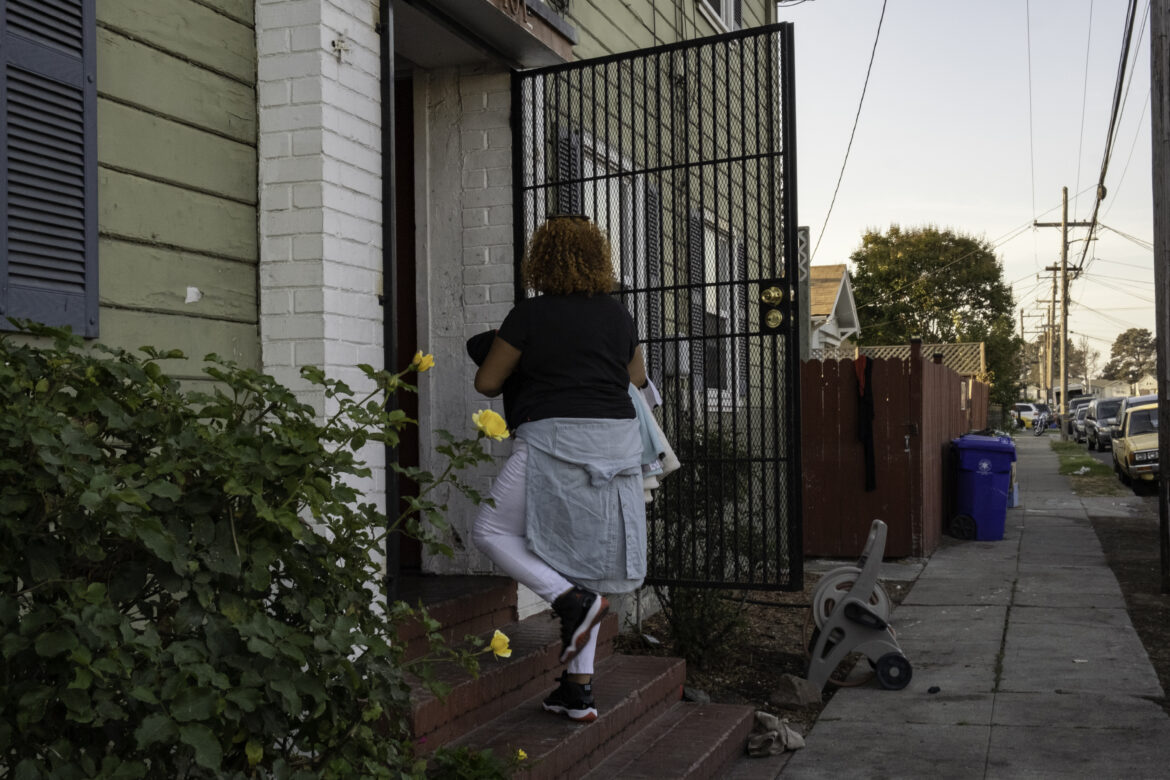
Yesica Prado / San Francisco Public Press and CatchLight Local
Hamilton Families, a San Francisco nonprofit providing housing for families in the Bay Area, provided Tantay Tolbert with this one-bedroom apartment in Richmond through a subsidy program. The nonprofit paid for her first and last months’ rent. Because of the coronavirus pandemic, the program will subsidize her rent for two years, while Tolbert pays $546 each month, about one-third of her income.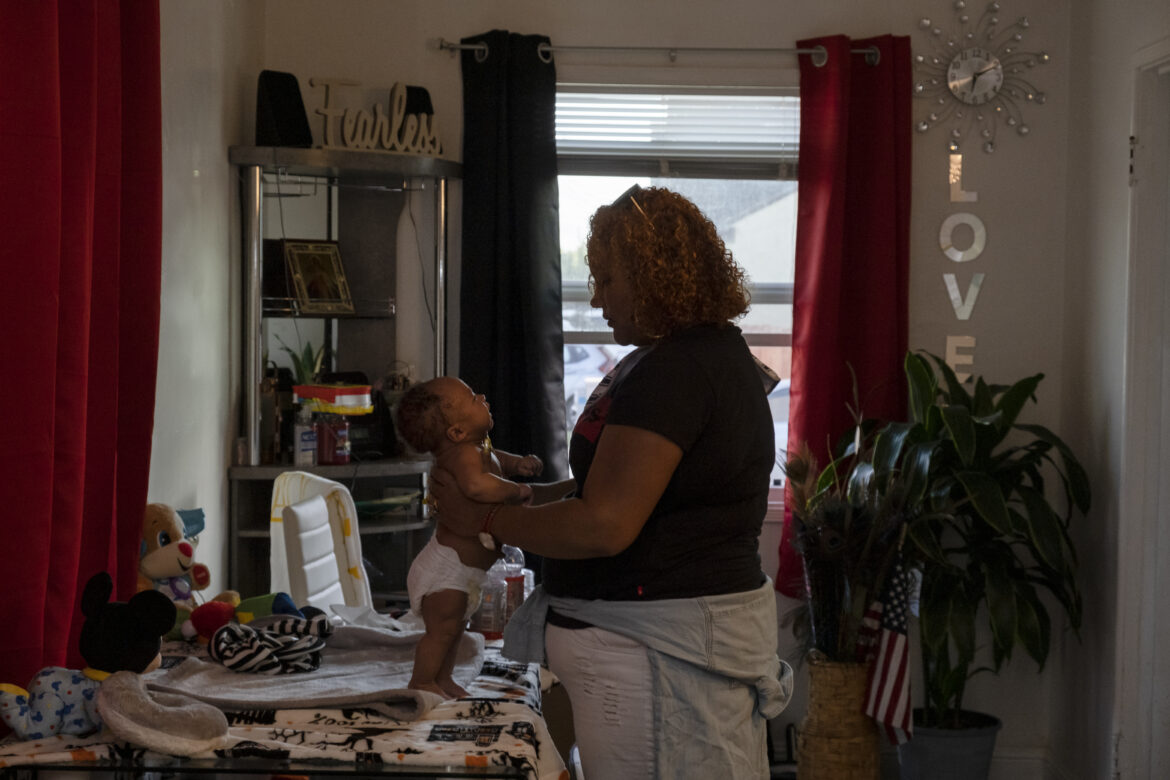
Yesica Prado / San Francisco Public Press and CatchLight Local
Tantay Tolbert changes her son’s clothes on the dining room table in her new apartment. In March, the Homeless Prenatal Program in San Francisco offered her a hotel room for 90 days, and this became her first step into stable housing. After the hotel room, she transitioned into subsidized housing. “They looked out for me during the time of my pregnancy,” Tolbert said. “They gave us vouchers and made sure we had something to eat. It was catered food every day. It was blessed.” On June 16, Hamilton Families gave Tolbert the keys to her new apartment. “On Tupac’s birthday. It’s a Black holiday,” she said. A time to celebrate.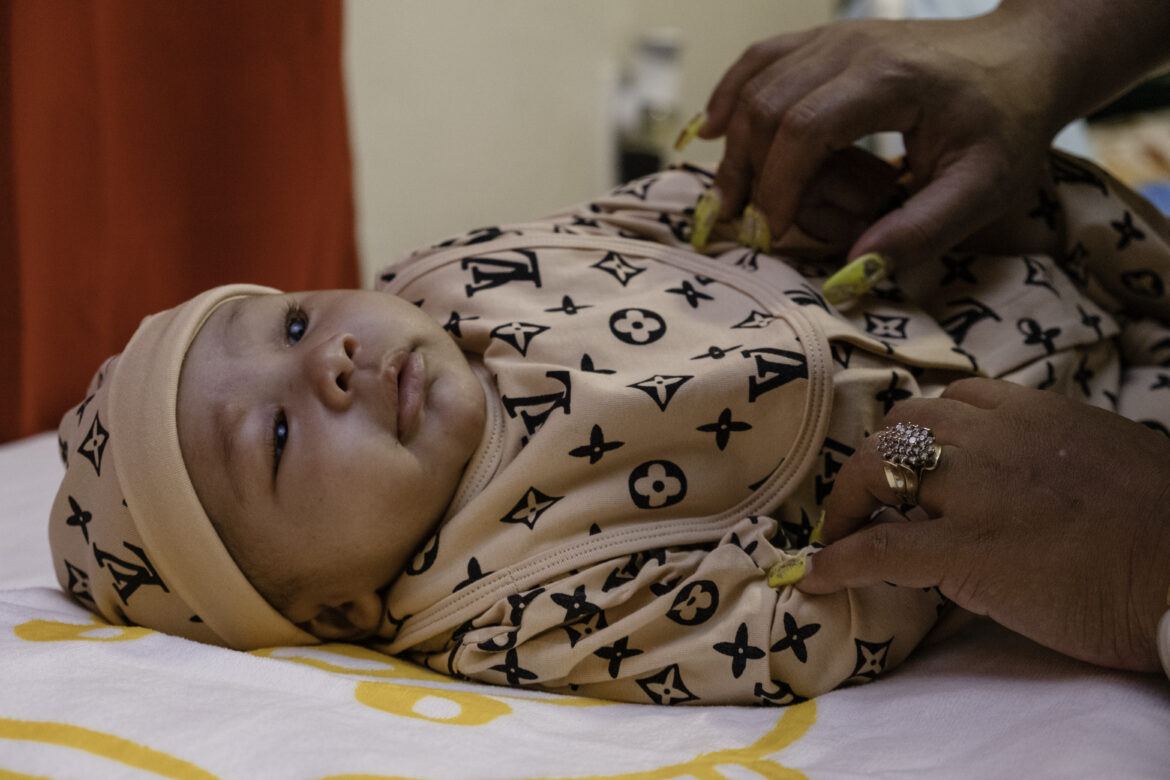
Yesica Prado / San Francisco Public Press and CatchLight Local
Tolbert fixes her baby’s Chanel-print outfit before going out for the day. Due to high blood pressure and sugar levels, Tolbert was induced into labor with a C-section two months early. Supreme Samuel Lloyd-Vaughn, her first child, was born July 19. He weighed six pounds, seven ounces.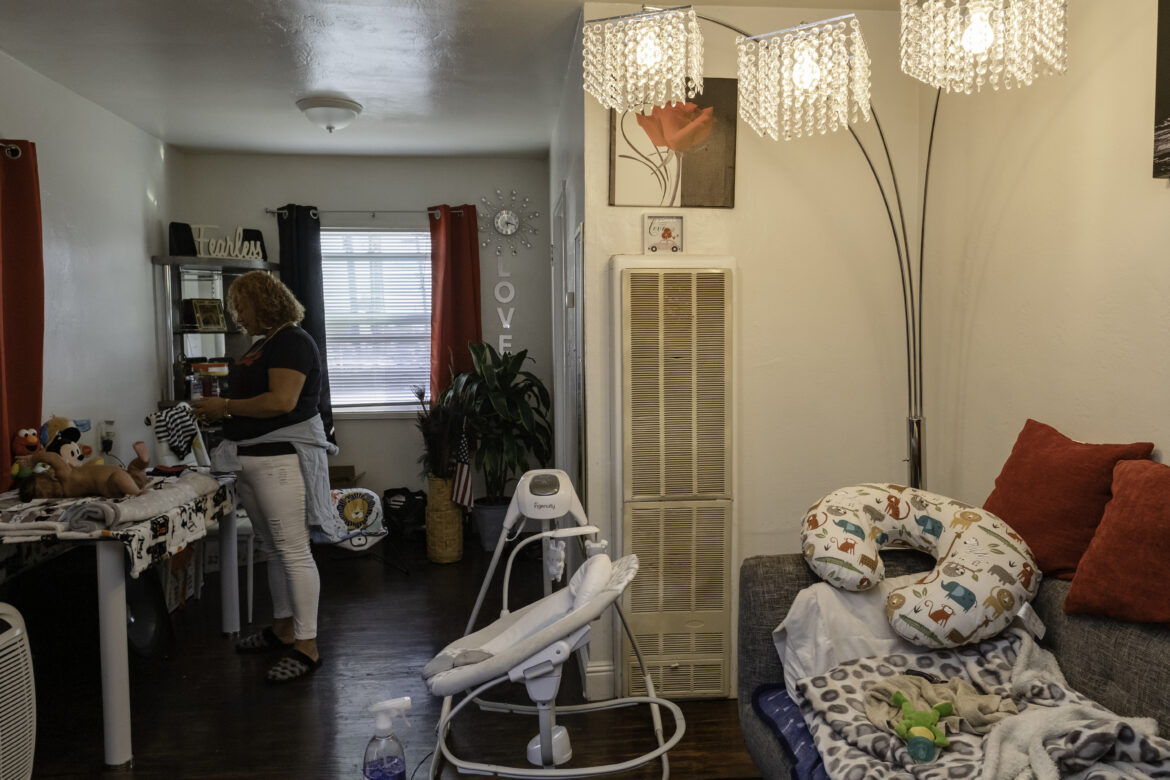
Yesica Prado / San Francisco Public Press and CatchLight Local
Tolbert changes her baby’s diaper at her dining room table in her new apartment in the East Bay. Since moving out of her recreational vehicle in San Francisco’s Bayview neighborhood, Tolbert lives with less stress. She no longer wakes up thinking, “if I gotta move or not today” or “nothing is permanent or stable,” she said. Tolbert used to have a job cleaning elevators at the Civic Center BART station for nonprofit Urban Alchemy. She quit while pregnant because she was afraid of contracting the coronavirus while working in enclosed spaces. While Tolbert is unemployed now, she is able to live a more comfortable life with help of the city’s homeless service providers and her unemployment check. “Donald Trump is helping me out right now. It’s all on Trump,” Tolbert said. “He definitely gave America some money. We haven’t had money like this,” she said, referring to executive orders he signed earlier this year to augment state unemployment checks. The money has made a difference in her life, allowing her to purchase new household appliances and clothing, and pay overdue bills.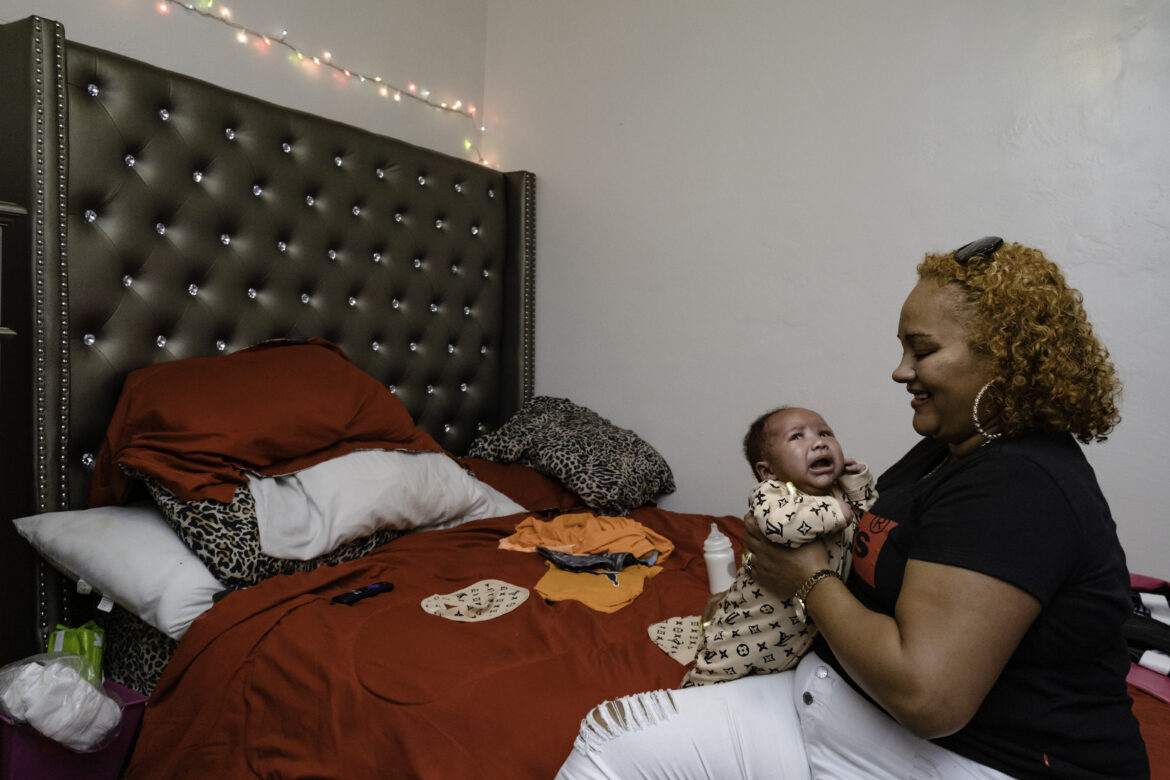
Yesica Prado / San Francisco Public Press and CatchLight Local
Tolbert comforts Supreme inside her bedroom. Tolbert has changed him into clean clothes, but the baby wants a nap. In her new home, Tolbert is able to maintain everyday comforts, but her happiness comes from “always being mentally in a comfortable place,” Tolbert said. “Like you should be in any situation, be comfortable and happy.” Tolbert does not want much but a safe space to raise her child. “Comfortable is knowing I have the baby,” she said. “Teach him and just learn how to be a parent.”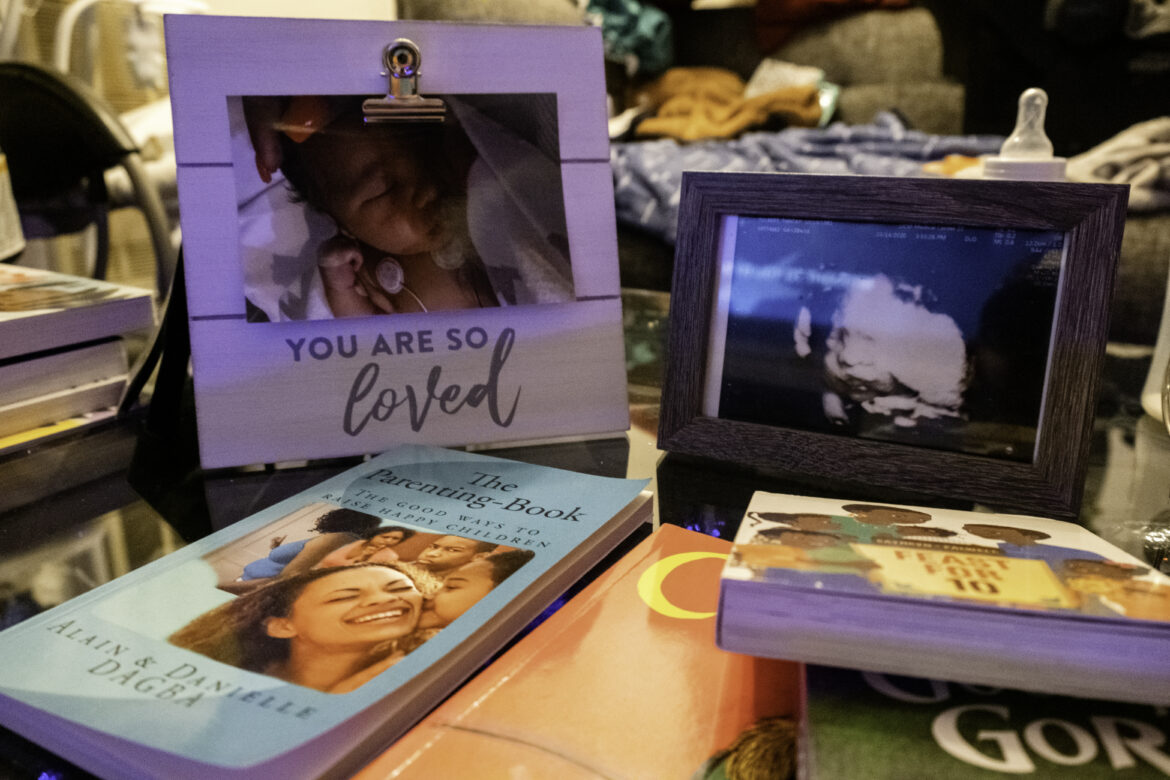
Yesica Prado / San Francisco Public Press and CatchLight Local
Supreme’s ultrasound and firstborn pictures sit on a glass table in Tolbert’s living room. She reads children’s books to her baby such as “Corduroy” and “Feast for 10,” which are a few of her favorites. During Supreme’s nap times, Tolbert reads her parenting book, “The Good Ways to Raise Happy Children.”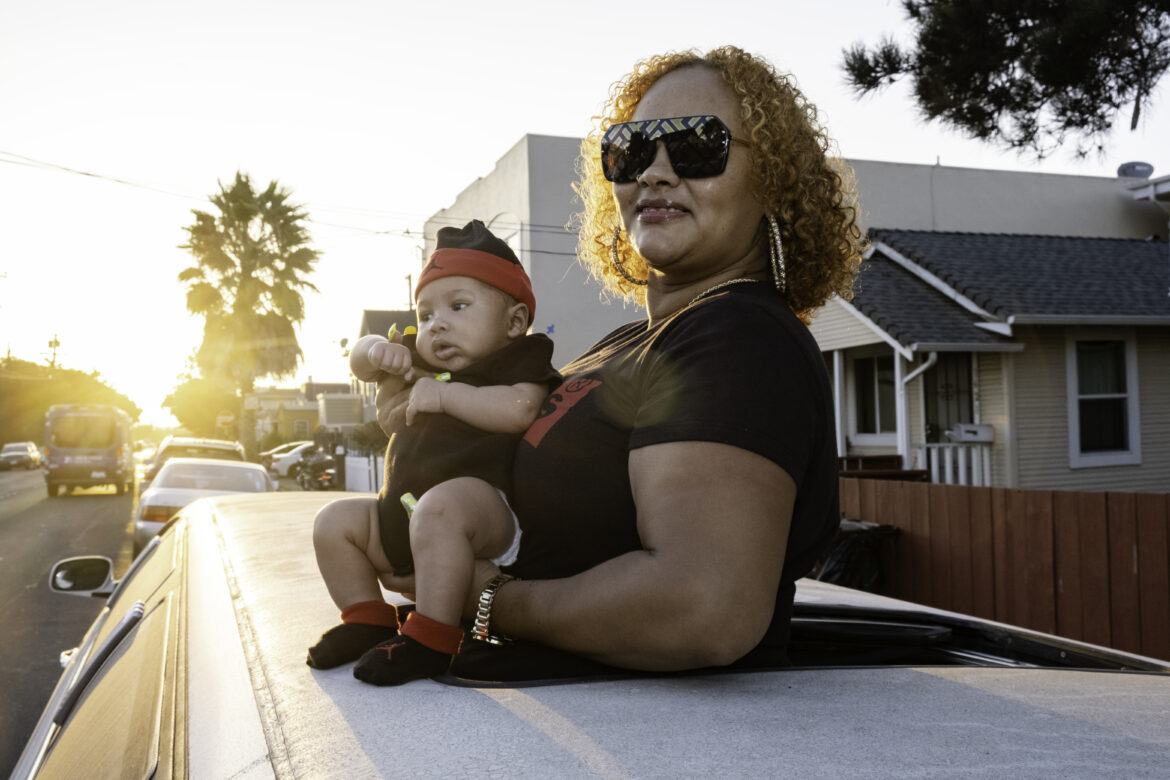
Yesica Prado / San Francisco Public Press and CatchLight Local
Tantay Tolbert holds her son Supreme Lloyd-Vaughn and poses for a portrait through a limousine sunroof in Richmond. Tolbert has a side business with her partner selling used vehicles, which she acquires from auto auctions. The couple fixes mechanical issues and sells the vehicles for a profit. In August, they acquired their first limousine with the intention of expanding their business into car rentals. But the coronavirus pandemic has slowed that side of the business, so the couple takes it out on Sundays for family party drives.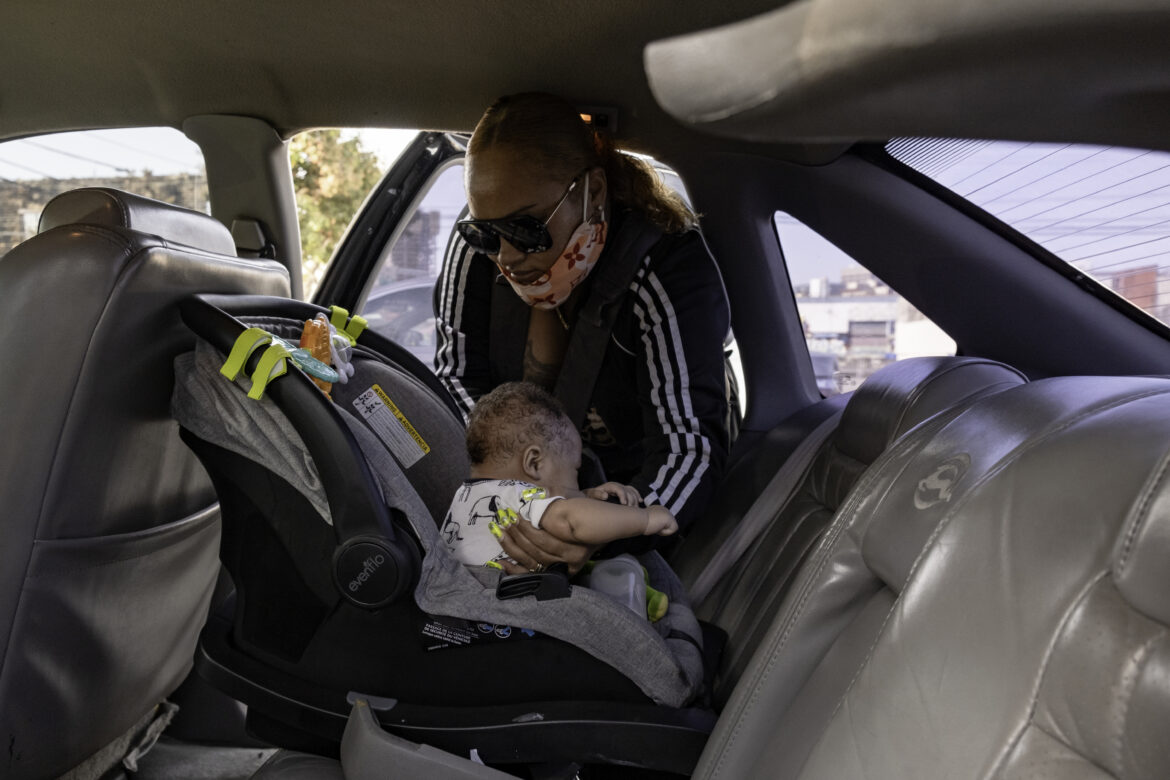
Yesica Prado / San Francisco Public Press and CatchLight Local
Tolbert unbuckles Supreme’s car seat as she prepares to go grocery shopping in San Francisco. She places him in a baby carrier on her chest for a more comfortable shopping experience. On this trip, Tolbert was loading up on food and household supplies for the month, so she can limit her trips during the pandemic. She enjoys being a stay-at-home mom and watching her son grow. “I never expected to be a mother,” Tolbert said. “But here he is, right Papa?” she said to Supreme.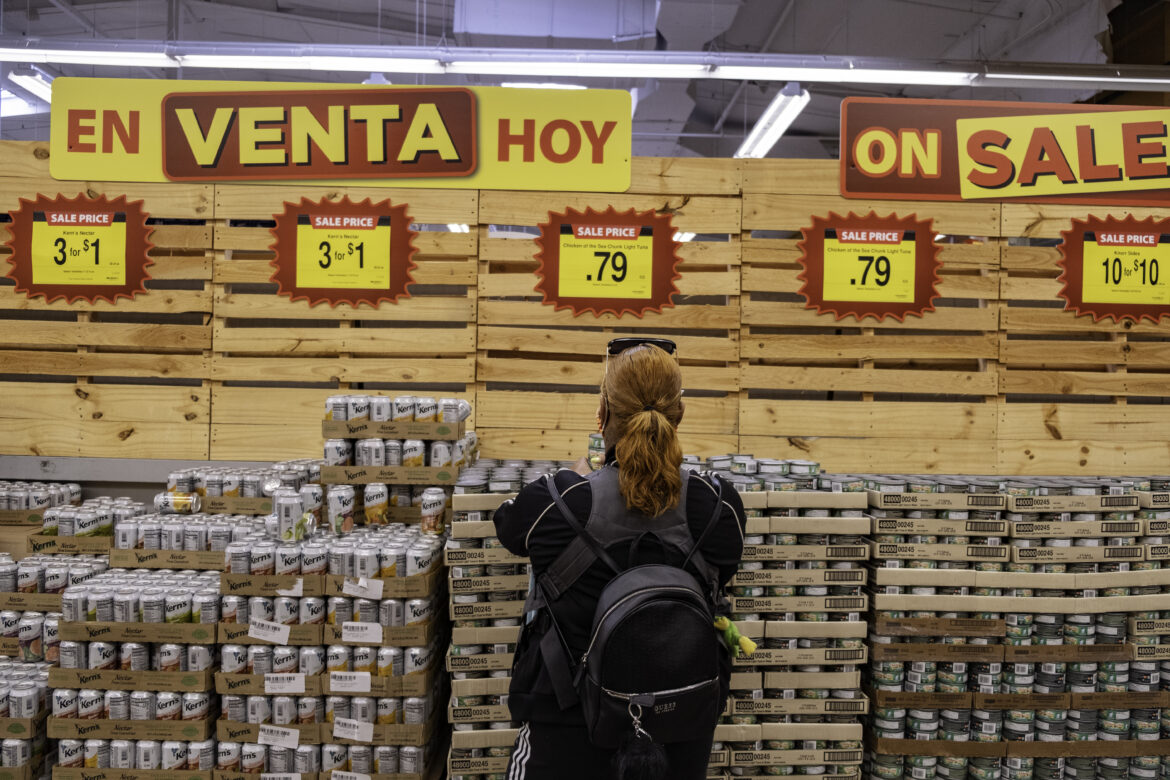
Yesica Prado / San Francisco Public Press and CatchLight Local
At the grocery store, Tolbert loads up her cart with canned tuna. She stocks up on dry goods and nonperishables from Foods Co. on Folsom and 14th streets in San Francisco. At this store, she is able to cash in her food vouchers from the Black Infant Health program.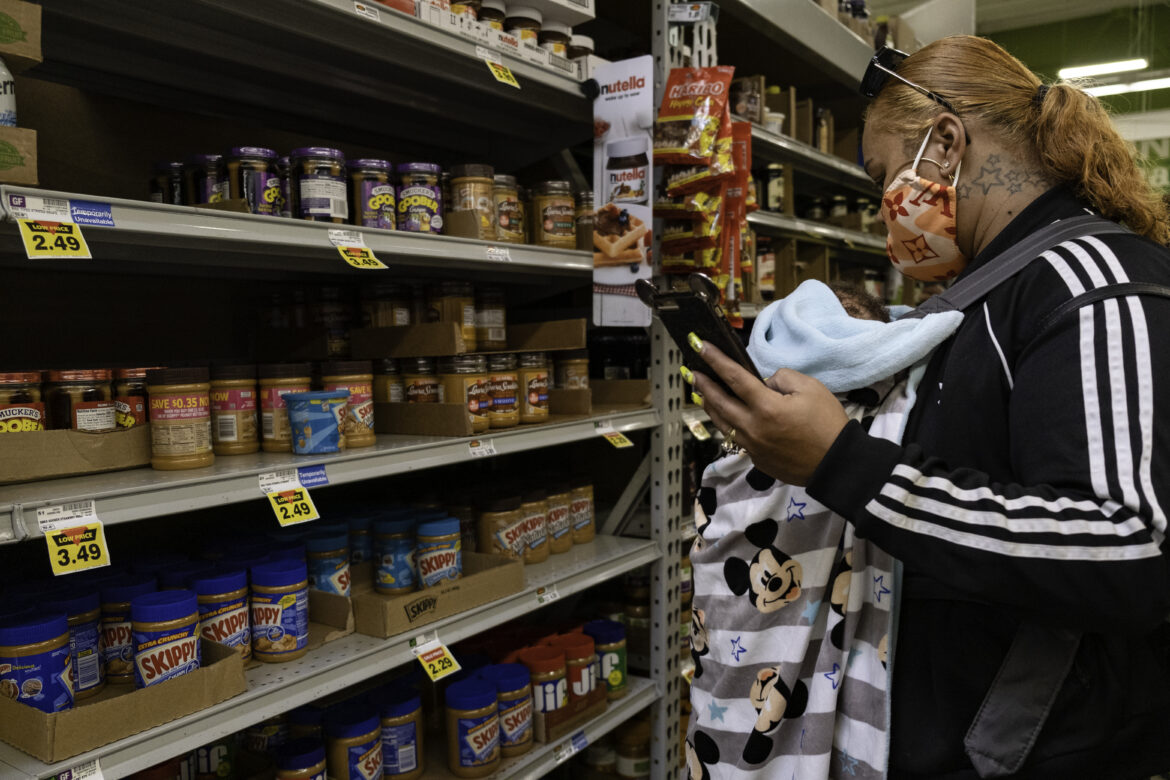
Yesica Prado / San Francisco Public Press and CatchLight Local
In the baking aisle, Tolbert scans a shelf of peanut butter jars looking for brands that she is eligible to purchase with her WIC benefits, which she can only use to buy specific food products from designated stores, preventing her from accessing healthier choices. She spends 20 minutes looking for items from the list on her phone, but only finds two in stock.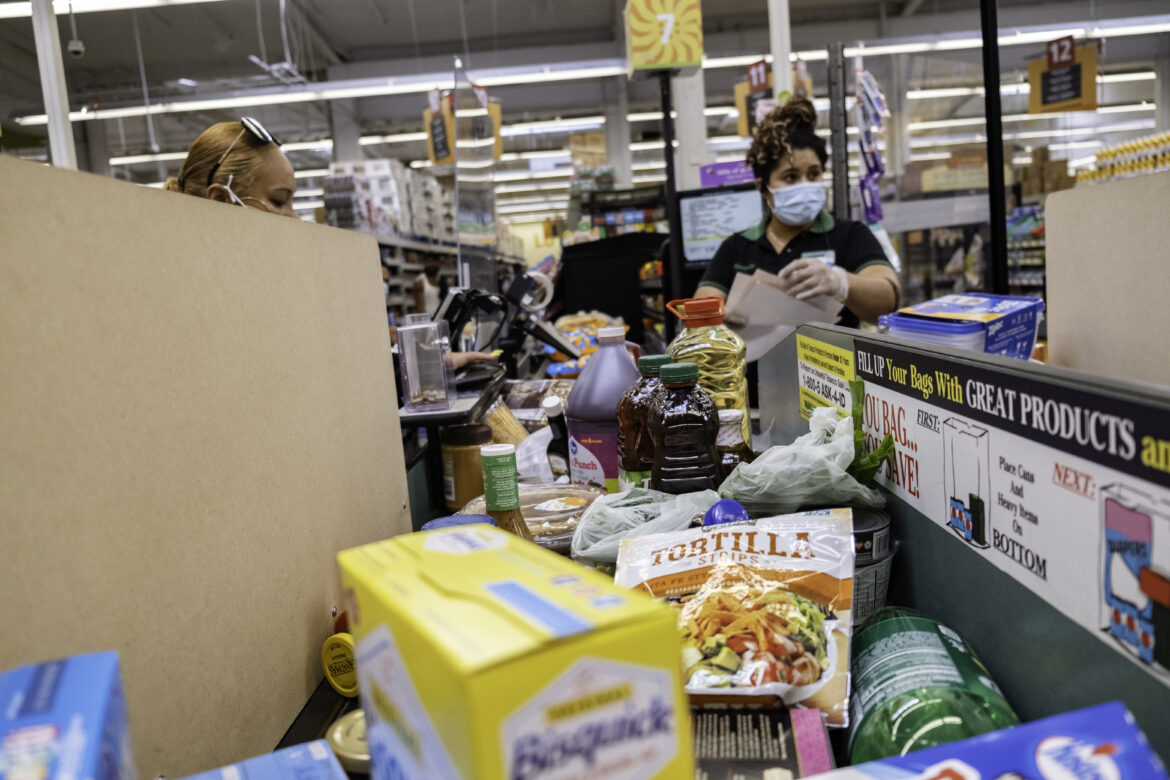
Yesica Prado / San Francisco Public Press and CatchLight Local
After scanning a shopping cart full of food, Tolbert hands the cashier her monthly vouchers to pay for her groceries at Foods Co. She saves her weekly food vouchers until the end of the month to stock up during one trip. The vouchers do not always cover the total, but Tolbert is able to use her CalFresh and WIC benefits to cover the rest.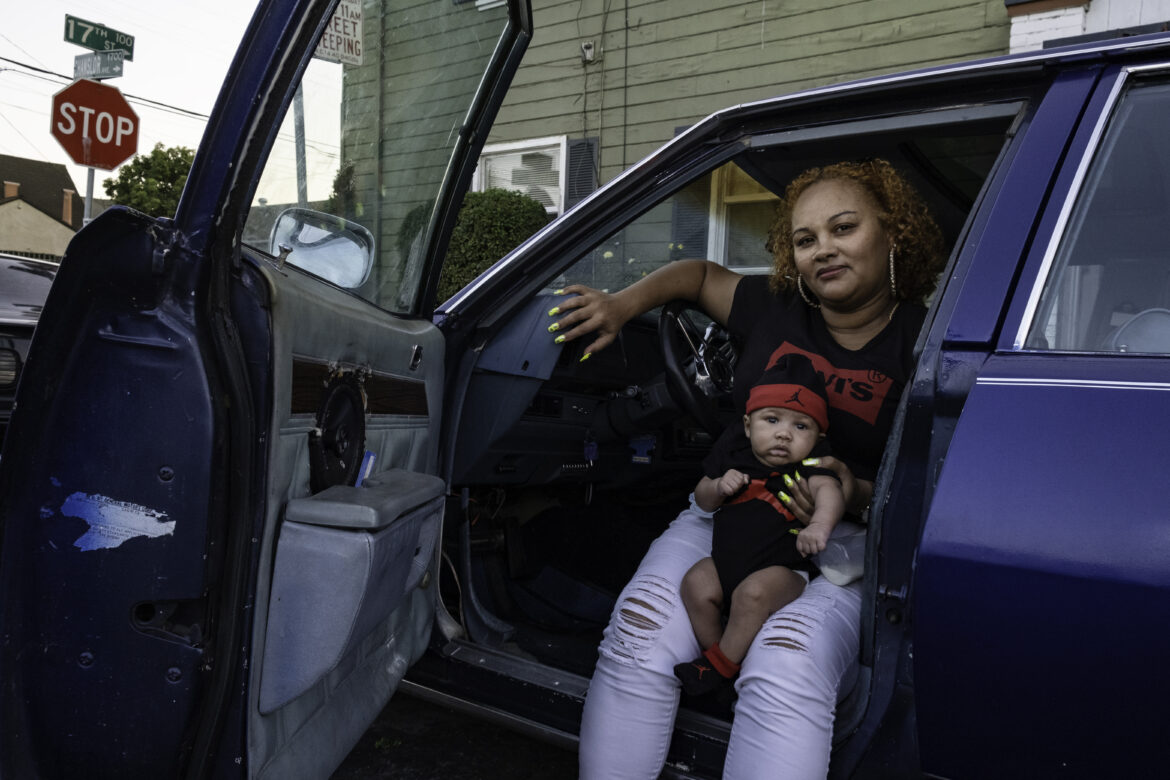
Yesica Prado / San Francisco Public Press and CatchLight Local
Tantay Tolbert poses for a portrait with her son Supreme inside her 1977 Chevrolet Impala in front of her apartment in Richmond. She is hoping to get $10,000 when she sells this classic vehicle. Since the pandemic started, Tolbert and her partner have increased their car sales. “People are buying equity, and they can get to where they need to go,” she said. Tolbert says she has used some of her unemployment benefits to buy cars at auctions. She and her partner fix up the cars and sell them to people — some of whom are using their own unemployment benefits to pay for the vehicles. “We’ve been doing it since I was 21. I’m 38 now. We can do this with our eyes closed,” Tolbert said confidently. “This has been the whole solid foundation.”This story is part of “Driving Home: Surviving the Housing Crisis” and was produced in collaboration with the Bay Area visual storytelling nonprofit CatchLight through its CatchLight Local Initiative. As a CatchLight Local Fellow at the San Francisco Public Press, Yesica Prado examined the culture of vehicle living in San Francisco and Berkeley. Her fellowship work has been featured by the Yerba Buena Center for the Arts and by the Artists Against an #Infodemic Campaign, which aims to improve access to locally relevant public health information. The CatchLight Local Initiative is funded by the Kresge Foundation, The GroundTruth Project, the Facebook Journalism Project, the Neda Nobari Foundation and the Lisa Stone Pritzker Family Foundation.
